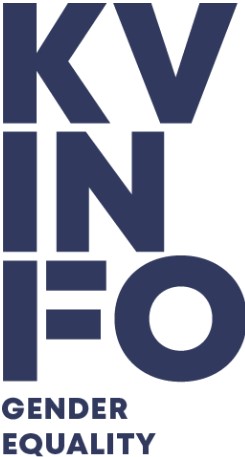Knowledge
Integration and employment

Barriers and potentials
The report Barriers for women with an immigrant and refugee background in the Danish labor market collects and analyses research results in the field of integration. The report was published by KVINFO in 2021.
More in employment
If we want gender equality in Denmark, it is absolutely crucial that more minority ethnic women gain a foothold in the Danish labor market. Because work is the path to economic independence, self-determination, community and not least recognition from the rest of society.
Read more in this analysis from KVINFO’s director, Henriette Laursen.
The employment rate for female immigrants with non-Western backgrounds aged 16-64 was 52.1 percent in 2019, according to Statistics Denmark.
It may seem low, but it has been even lower. In 1996, the employment rate was only 25.8 percent.
Despite doubling, just under half of this group of women are unemployed. KVINFO has investigated why and analysed the barriers that these women face both as individuals and as a group. The analysis shows that there is great potential to get more of these women into jobs.
A group with different challenges and capabilities
Women with a minority ethnic background are far from a homogeneous group. This is also true in relation to their employment opportunities, where some are doing well in the labor market, while others are finding it very difficult to get a job.
In addition to gender, age, country of origin and basis of residence also affect the employment rate. These are, of course, factors that no one can change.
Change is however possible when it comes to three other significant employment-promoting factors: Danish language skills, education and networking.
Language, education and networking
A significant challenge for part of the group of women with non-Western backgrounds is their Danish skills. 27 percent of non-western immigrants with at least three years of life in Denmark, believe that they have some or a great deal of difficulty finding work due to language barriers. This is shown by figures from the Ministry of Immigration and Integration’s Citizenship Survey 2020.
Lack of education also makes it harder to get a job. 39 per cent of women of non-Western origin between the ages of 25 and 64 lack a vocational qualification, where the corresponding figure for women of Danish origin is 21 per cent. These figures are from Statistics Denmark 2019.
Also, if one’s social and professional network is limited, it is very difficult to get a job. And when it finally succeeds, it is often in jobs in the service sector with sparse contact with ethnic Danes.
High work motivation
Although the barriers may seem unmanageable, there is great potential for more women with a minority background in jobs.
First and foremost, the work motivation is high: 94 percent among ethnic minorities in Denmark believe that it is important to have a job, so you can support yourself. This applies to roughly the same extent to women and men, according to a study by Als Research in 2019.
The vast majority also consider it important that one’s spouse has a job. So say 89 percent of non-Western immigrants in the Ministry of Immigration and Integration’s Citizenship Survey from 2019.
Another good sign is that 34 percent of non-western immigrants between the ages of 25 and 64 have taken an education in Denmark. This is shown by a study from the Rockwool Foundation’s Research Unit from 2017. The willingness to be educated is telling and indicates work motivation, but is also a good thing, because education – and especially a Danish education – demonstrably promotes the prospect of getting a job.
Mentor network in socially vulnerable districts
The vast majority of women with a minority ethnic background want a job and to earn their own money.
We also experience this in KVINFO’s mentor network, where we have 19 years of experience in arranging mentoring courses for women with an immigrant and refugee background.
Since 2017, work has focused in particular on supporting minority ethnic women in social housing areas in their efforts to obtain education and jobs.
Through voluntary mentoring courses, the women get to expand their network in order to get closer to more potential employers. It is very important in Denmark, where many positions are filled through networks instead of job postings.
The mentoring process also gives the women training in language. And they are challenged in relation to their own barriers, so they become better at seeing opportunities and taking initiatives.

